Lifestyle
Nikki Giovanni doesn't think about her legacy. But here's a moment she felt proud : Wild Card with Rachel Martin

Nikki Giovanni takes part in a Q&A following a screening of the documentary Going To Mars: The Nikki Giovanni Project.
Michael Loccisano/Getty Images for FLC
hide caption
toggle caption
Michael Loccisano/Getty Images for FLC

Nikki Giovanni takes part in a Q&A following a screening of the documentary Going To Mars: The Nikki Giovanni Project.
Michael Loccisano/Getty Images for FLC
A note from Wild Card host Rachel Martin:
There are so many words I could use to describe Nikki Giovanni: poet, revolutionary, queer icon, feminist, space enthusiast, mother and grandmother, legend. Giovanni is all those things. But she is also a woman who figured out really early that she did not have to apologize to anyone for who she was – or what she wanted from her life.
She can write poems that look directly at all of the pain and hatred in the world, and she can write children’s books about feeling safe and loved. She can also conjure what it will look like when humans set up shop on Mars, and Black women lead the way.
Nikki Giovanni just turned 81, and her first eight or so decades of life have been about as accomplished as anyone could hope for. She has been doing it her own way all along. And writing it down so the rest of us can start to see beyond ourselves and whatever hard thing we are stuck in.
Nikki Giovanni reads her poem “A Good Cry.”
YouTube
This Wild Card interview has been edited for length and clarity. Host Rachel Martin asks guests randomly-selected questions from a deck of cards. Tap play above to listen to the full podcast, or read an excerpt below.
Question 1: Were you obsessed with a particular cosmic question as a kid?
Nikki Giovanni: Yes. I wanted to know why Mars was red. And my obsession was that there was a war on Mars and that they had developed atomic energy so that Mars burned itself up. And as I lay in bed for most of my life, looking out the window, I have seen Mars, which is why I talk about it a lot. And I would like to go to Mars because I think that as a Black woman, my sisters and I could build a community.
Rachel Martin: When did Mars first come into your head? Do you remember?
Giovanni: I shared a bedroom with my big sister. She wanted the bed by the wall, I don’t know why. That gave me the bed by the window. And so I would look out the window and watch the stars. And the stars haven’t changed. So you have to ask yourself, what are they telling us? What am I learning?
Martin: Did fixing your gaze upward make you feel safer? You had a tough home life. You’ve talked and written a lot about that. Did that help you escape whatever was going on at home?
Giovanni: Well, my parents had what I would call, in nice words, a troubled marriage. And space let me know that this could not be the end. When you start to look at the stars and you think about the other life forms, you think, “Well, there is something else. I can’t quit now. There is something else.”
Question 2: What emotion do you understand better than all the others?
Giovanni: Patience. I’m incredibly patient.
Martin: Where does that come from?
Giovanni: Well, I don’t know. I’m the baby sister of two. So you’re always watching your big sisters because they’re always so wonderful. They’re prettier, they’re more intelligent, everything. And you want to say, well, one day I’ll grow up or whatever.

But I also have a great love of old people and old women. I have very few friends my age. I’m 81. Being 80 kicked my butt. I mean, if it could be wrong with me, it was wrong with me. And I was thinking, okay, I had lung cancer, and I had breast cancer, and I realized I don’t want to be sitting in hell – because I don’t think I’m going to heaven – but I don’t want to be sitting in hell, and have people say “she fought cancer for 20 years.” I’m not fighting any disease. I’m learning to live with it. And I want the disease to live with me.
So every morning that I wake up, me and cancer, we’re in good shape. And I say, well, let’s take a shower and go about our day. And one day, we won’t. And then that means that I’ll be transitioned. I’ll be in another place.
Martin: Yeah. Are you afraid of anything?
Giovanni: Well, I’m – I’m very cautious around ostriches.
Martin: Nikki, what are you talking about? Ostriches? You’re afraid of ostriches?
Giovanni: Well, yeah. Have you ever been on a safari? They are mean. And that kick will kill you. Ask a lion. If you had to put a lion against an ostrich, the lion is gone.

Martin: That’s just not where I thought we were going to go. [laughs]
Giovanni: I’m not afraid of lions because lions are an intelligent being that, unless you’re threatening them, they’re not going to bother you. You have to be careful around ostriches. People need to know that.
Question 3: Do you think about the legacy that you will leave behind?
Giovanni: No.
Martin: Wow. I’m surprised by that answer.
Giovanni: Because it gets you caught up in your life, and your life is not about your life, your life is about your duty. And so, no, I don’t think about it.
Martin: Have you seen people get too caught up in preemptively analyzing their legacy?
Giovanni: Oh, I’ve seen a lot. I know a lot of famous people, and they’ll say, “I wonder what my stamp would look like.” I’ll be dead. So it doesn’t matter. I’m just glad when me and cancer wake up. And one day, we won’t.
My friend Tony Morrison whom I love so very much, she wrote in Sula, when Sula is dying, she says, “oh wait till I tell Nell it doesn’t hurt. Wait till I tell Nell.”
Martin: Let me ask this question in a different way. I get what you’re saying, that you don’t want to get wrapped up in your ego. But are there moments when you think back on your life and allow yourself moments to feel proud?
Giovanni: Oh, there are moments that I feel proud because I’ve worked hard. And when I went to the opening of the African American Museum in D.C, I had forgotten we gave permission to use my poetry. And when I turned a corner, there was a photograph of me. And it brought tears to my eyes. And I turned over my shoulder and said, “Look, grandmother, I did my duty.” And that still amazes me. It’s like she was there. I did my duty and that’s what matters to me.

Lifestyle
A glimpse of Iran, through the eyes of its artists and journalists
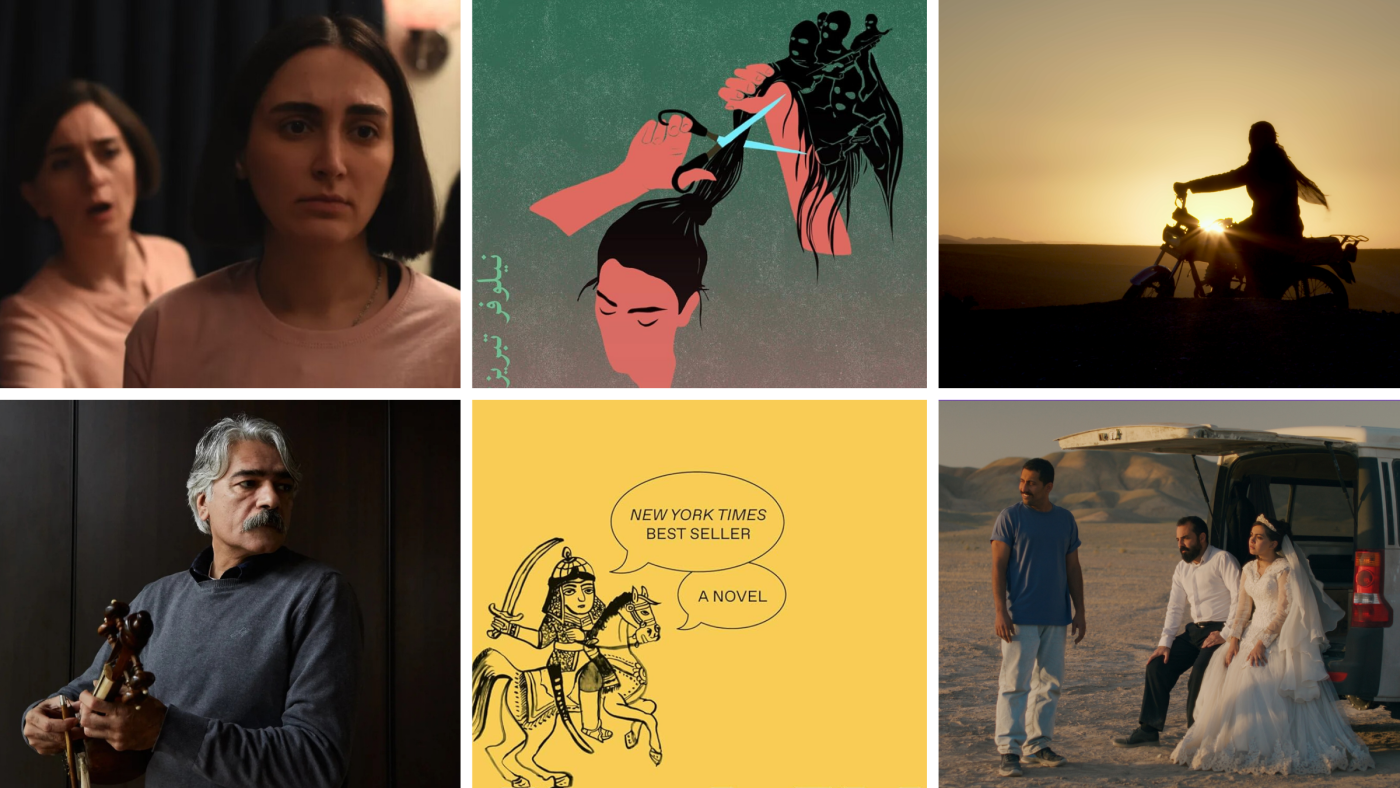
Understanding one of the world’s oldest civilizations can’t be achieved through a single film or book. But recent works of literature, journalism, music and film by Iranians are a powerful starting point. Clockwise from top left: The Seed of the Sacred Fig, For The Sun After Long Nights, Cutting Through Rocks, It Was Just an Accident, Martyr!, and Kayhan Kalhor.
NEON; Pantheon; Gandom Films Production; NEON; Vintage; Julia Gunther for NPR
hide caption
toggle caption
NEON; Pantheon; Gandom Films Production; NEON; Vintage; Julia Gunther for NPR
Few Americans have had the opportunity to visit or explore Iran, an ethnically diverse nation of over 90 million people which has been effectively shut off from the United States since the Iranian revolution of 1979. Now, with a U.S. and Israeli-led war on Iran underway, the ideas, feelings and opinions of Iranians may feel less accessible. However, some recent books, films and music made by artists and journalists in Iran and from the Iranian diaspora can help illuminate this ancient culture and its contemporary politics.
These suggestions are just a starting point, of course — with an emphasis on recent works made by Iranians themselves, rather than by outsiders looking in.
Books
For the Sun After Long Nights: The Story of Iran’s Women-Led Uprising, by Fatemeh Jamalpour and Nilo Tabrizy
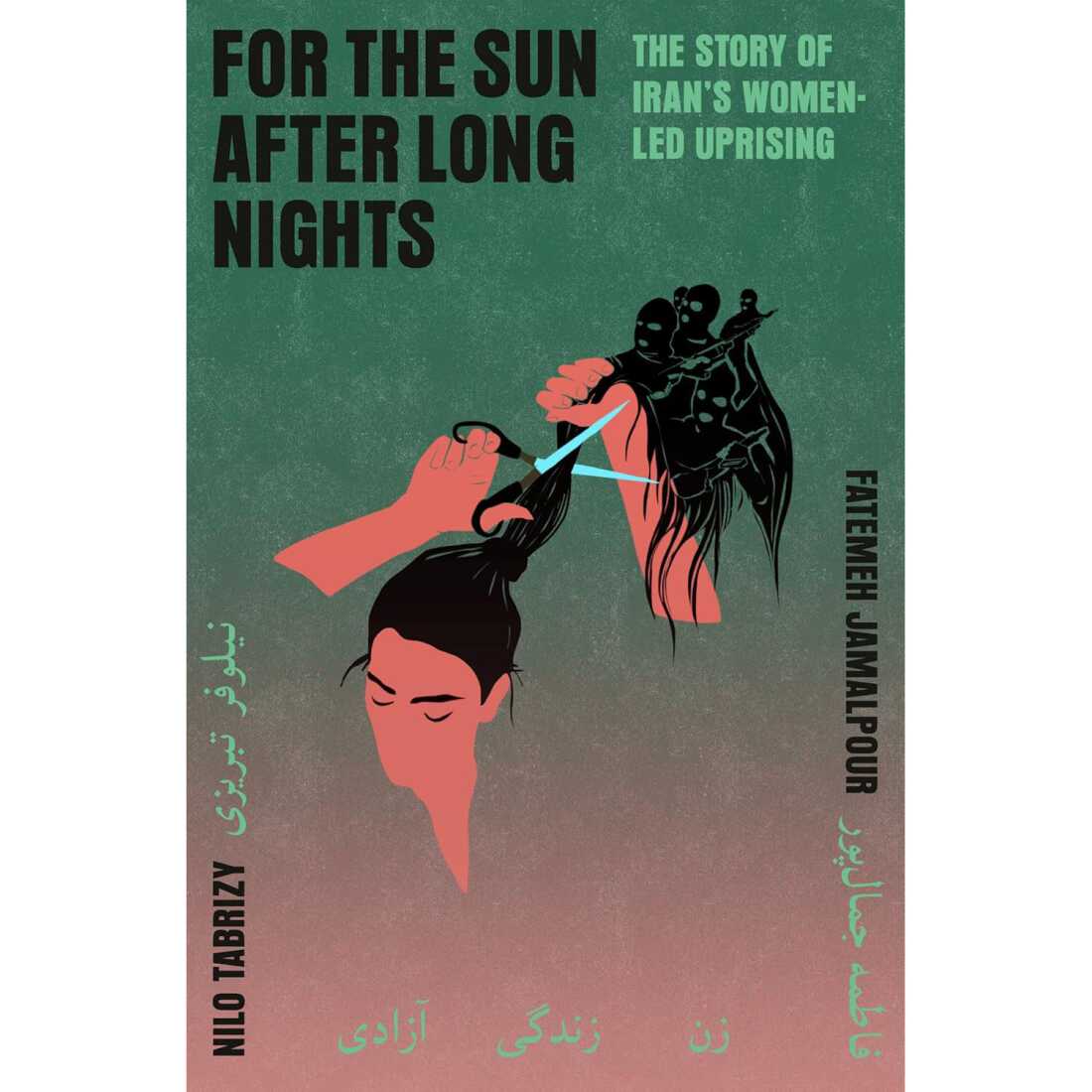
There are quite a few excellent titles that deconstruct the history of Iran from ancient times through the rule of the Pahlavi Dynasty to the Iranian Revolution. But there are far fewer books that help us understand the Iran of 2026 and the people who live there now. One standout is the National Book Award-nominated For the Sun After Long Nights: The Story of Iran’s Women-Led Uprising by journalists Fatemeh Jamalpour and Nilo Tabrizy, which chronicles — almost in real time — the Woman, Life, Freedom movement that began in 2022, during which Jamalpour was working secretly as a journalist in Tehran. In 2024-25, Jamalpour (who is now living in exile in the U.S.) and I spent a year together at the University of Michigan’s Knight-Wallace fellowship for journalists; her insights into contemporary Iran are among the best.
Gold, by Rumi, translated by Haleh Liza Gafori

If Americans are familiar with Persian poetry at all, it may well be through popular “translations” of the 13th-century Sufi poet Jalaluddin Rumi done by the late American poet Coleman Barks, who neither read nor spoke the Persian language and detached the works of Molana (“our master”), as Iranians call him, of references to Islam. (Instead, Barks “interpreted” preexisting English translations.)
In 2022, Iranian-American poet, performance artist and singer Haleh Liza Gafori offered the first volume of a corrective, in the form of fresh Rumi translations that are at once accessible, deeply contemplative and immediate. A second volume, Water, followed last year.
Martyr!: A Novel, by Kaveh Akbar
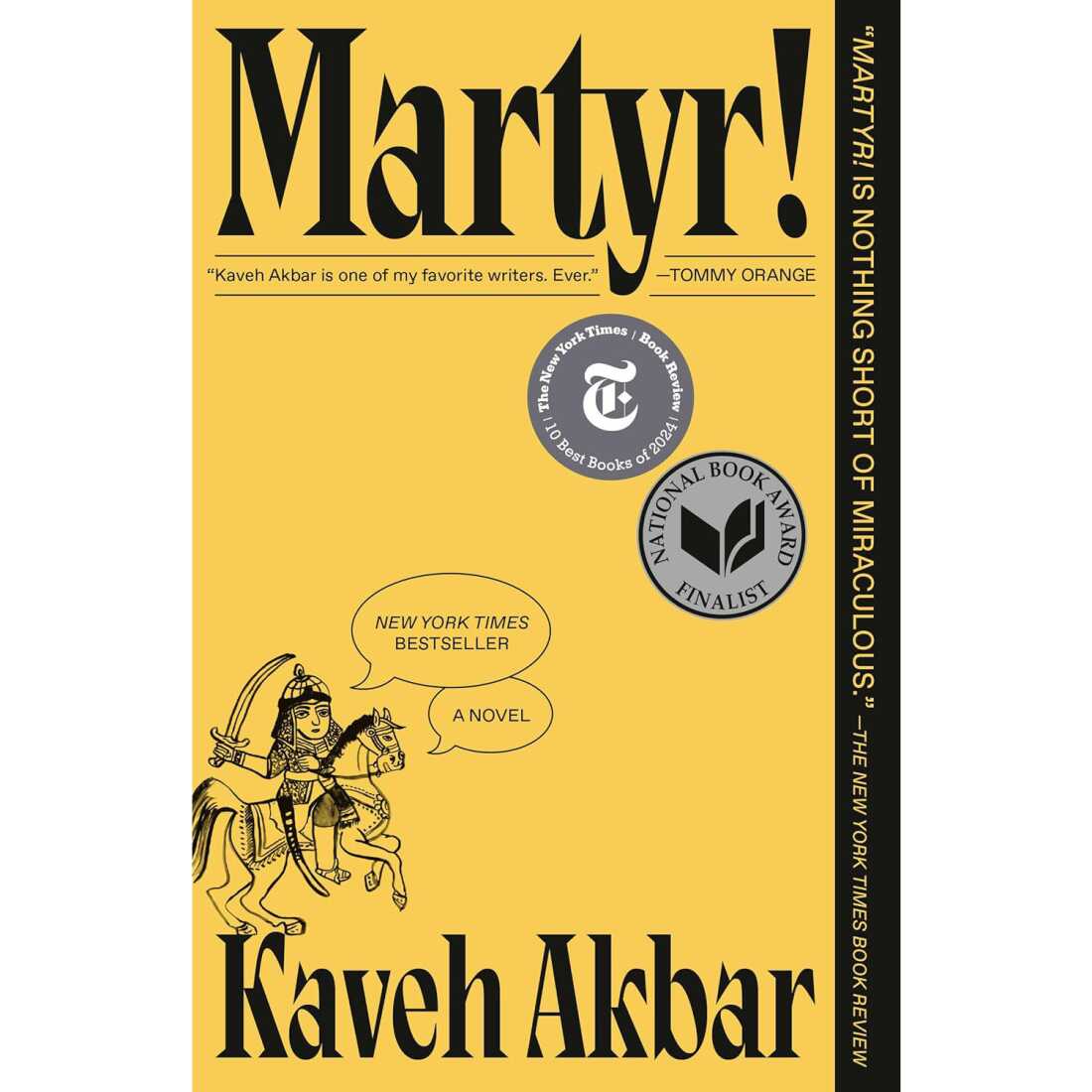
This 2024 debut novel by Kaveh Akbar, the poetry editor at The Nation, is an unflinching tour-de-force bursting with wit and insight into the complications of diaspora, the nature of identity in a post-War on Terror world and the inter-generational impact of the 1979 Revolution on Iranians. The protagonist, the Iran-born but American-raised Cyrus Shams, has struggled with addiction, depression and insomnia his whole life, and is trying his best to make sense of a world at the “intersection of Iranian-ness and Midwestern-ness.” As with so many other of the titles here, fiction and fact are woven together: the story centers around the true story of the U.S. downing an Iranian passenger plane in 1988 during the Iran-Iraq war.
The Stationery Shop: A Novel, by Marjan Kamali
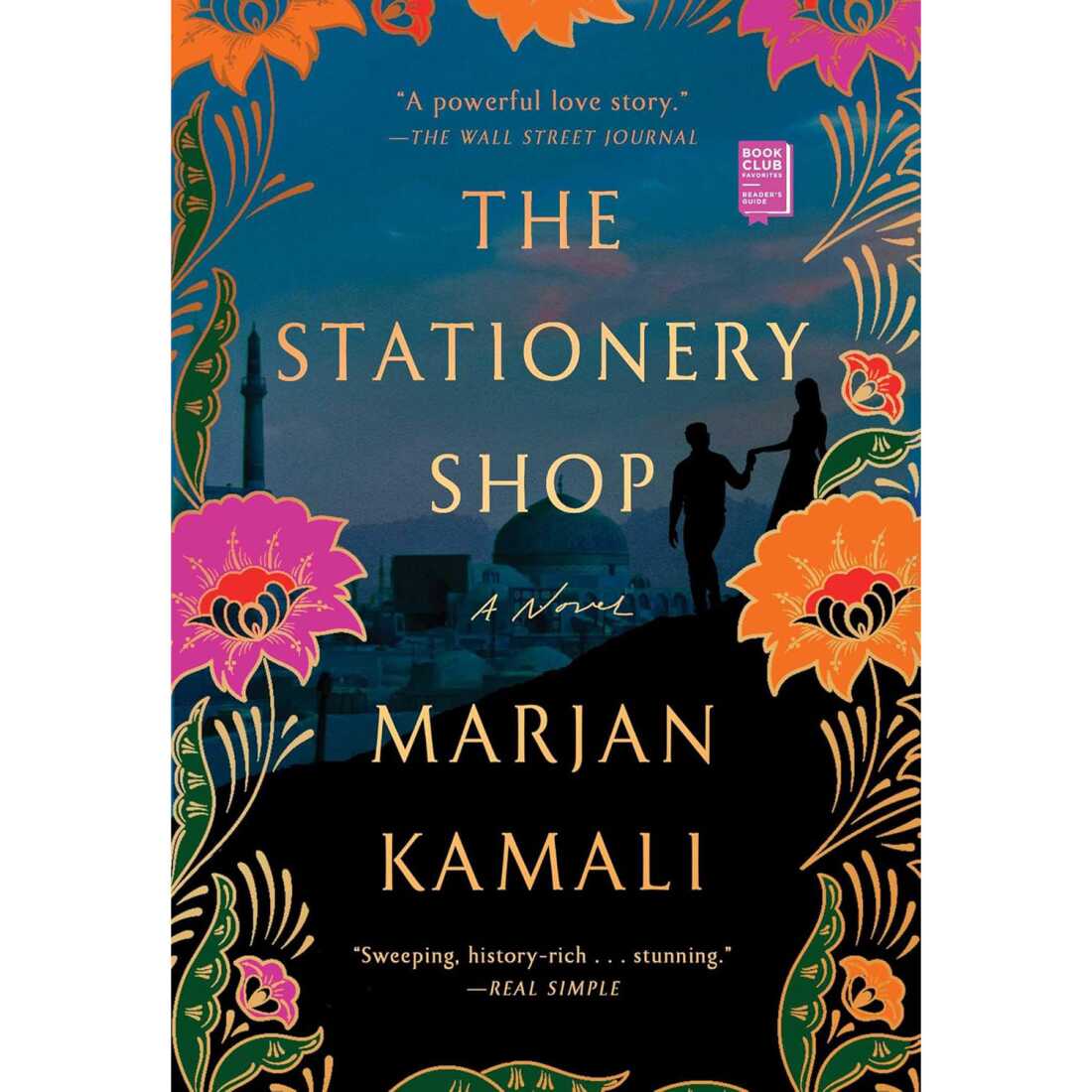
Marjan Kamali’s 2019 love story is the wistful tale of a young woman named Roya and an idealistic activist named Bahman, who meet cute in a Tehran store in the 1950s, but whose planned marriage falls apart due to turmoil both familial and political, as Iran’s democratically elected government falls in a U.S.-British lead coup that ends with the installation of the Shah. Roya flees to the U.S. for a fresh start, but the two reunite in 2013, wondering: what if life had spun out in a different direction?
Movies
Coup 53
This 2019 documentary directed by Iranian film maker Taghi Amirani and co-written by Walter Murch recounts Operation Ajax, in which the CIA and Britain’s MI6 engineered the removal of Mohammad Mossadegh, Iran’s democratically elected prime minister, and installed a friendly ruler, Shah Mohammad Reza Pahlavi, in his place. (The Shah was ousted in the 1979 revolution.) As Fresh Air critic John Powers noted in his review, “What emerges first is the backstory of the coup, which like so much in the modern Middle East is predicated on oil. Shortly after the black gold was discovered in early 20th century Iran, a British oil company now known as BP locked up a sweetheart deal for its exploitation. Iran not only got a mere 16% of the oil money before British taxes, but the books were kept by the British — and the Iranians weren’t allowed to see them.”
YouTube
Cutting Through Rocks
Sara Khaki and Mohammadreza Eyni’s film Cutting Through Rocks is up for an Oscar this season after premiering at the 2025 Sundance Film Festival. This inspiring documentary follows Sara Shahverdi — a divorced, childless motorcyclist — as she campaigns to become the first woman elected to the city council of her remote village, and who dreams of teaching girls to ride and to end child marriage.
YouTube
It Was Just an Accident
The latest film from acclaimed director Jafar Panahi — who has officially been banned from making films in Iran — is 2025’s It Was Just an Accident. Panahi, who has been jailed multiple times for his work and was recently sentenced again in absentia, has said in interviews that his inspiration for this brutal – and shockingly funny – thriller was people he met while in prison: an auto mechanic named Vahid finds himself face-to-face with the man who he is fairly certain was his torturer in jail, and eventually assembles other victims to try to confirm his suspicions. Fresh Air critic Justin Chang called It Was Just an Accident “a blast of pure anti-authoritarian rage.”
YouTube
The Seed of the Sacred Fig
This 2024 thriller — shot in secret by director Mohammad Rasoulof — centers on a family whose father, Iman, is appointed as an investigating judge in Tehran. But it soon becomes clear that his job has nothing to do with actually investigating. Iman, his wife, and two daughters come to suspect each other in our age of mass surveillance, as the city streets below erupt into the real-life Woman, Life, Freedom protests.
YouTube
Music
Kayhan Kalhor
One of the primary ambassadors of Persian classical music has been the composer and kamancheh (an Iranian bowed-instrument) virtuoso Kayhan Kalhor. Although music, like poetry, has been central to Iranian culture for centuries, all kinds of music were initially banned after the 1979 revolution. Since then, however, Iranian classical musicians have ridden many looping cycles of official condemnation, grudging tolerance, censorship and attempts at co-option by the regime.
Despite those difficulties, Kalhor has built a thriving career both inside Iran and abroad, including winning a Grammy Award as part of the Silkroad Ensemble and earning three nominations as a solo artist. Back in 2012, I invited him to our Tiny Desk to perform solo. “Didn’t know I could have goosebumps for 12 minutes straight,” a YouTube commenter recently wrote; I couldn’t put it any better.
YouTube
Saeid Shanbehzadeh
Among Iran’s 92 million people, about 40% of come from various ethnic minorities, including Azeris, Kurds and Armenians among many others. One of the most fascinating communities is the Afro-Iranians in the Iranian south, many of whose ancestors were brought to Iran as enslaved people from east Africa. Multi-instrumentalist and dancer Saeid Shanbehzadeh, who traces his ancestry to Zanzibar, celebrates that heritage with his band, and specializes in the Iranian bagpipe and percussion.
YouTube
The underground metal scene
Despite ongoing restrictions on music — including the continued ban on female singers performing in mixed-gender public settings — Iran is home to a thriving underground scene for metal and punk. Though it’s fictional, Farbod Ardebelli’s 2020 short drama Forbidden to See Us Scream in Tehran — which was secretly filmed in Tehran, with the director giving instructions remotely from the U.S. via WhatsApp — gives a flavor of that real-life scene and the dangers those artists face.
YouTube
Lifestyle
Sen. Thom Tillis Rips Kristi Noem, Compares ICE Killings To Dog She Killed

Sen. Tillis To Kristi Noem
ICE Killings Are Like Dog You Killed
Published
Fireworks on Capitol Hill … Sen. Thom Tillis ripped into DHS Secretary Kristi Noem during a congressional hearing … comparing American citizens killed by immigration agents to a dog she killed.
Check out the video … the Republican Senator from North Carolina says Noem has shown terrible leadership and decision-making as Trump‘s DHS Secretary.
AP
Tillis says the killings of Renee Good and Alex Pretti in Minneapolis by ICE and Border Patrol remind him of a passage from Noem’s book … where she recalls killing a dog she brought on a hunting trip.
Noem said the 14-month-old dog, Cricket, was misbehaving … so she led the dog to a gravel pit and shot her.
X/@DHSgov
Sen. Tillis told her straight up … “Those are bad decisions made in the heat of the moment. Not unlike what happened up in Minneapolis. We’re an exceptional nation, and one of the reasons we’re exceptional is we expect exceptional leadership. And you’ve demonstrated anything but that.”
Lifestyle
For filmmaker Chloé Zhao, creative life was never linear

In 2021, Zhao made history as the first woman of color to win the best director Oscar for her film Nomadland. Her Oscar-nominated drama Hamnet has made $70 million worldwide.
Bethany Mollenkof for NPR
hide caption
toggle caption
Bethany Mollenkof for NPR
It took a very special kind of spirit to make Hamnet, which is nominated for best picture at this year’s Academy Awards. Chloé Zhao brought her uniquely sensitive, mind-body approach to directing the fictionalized story about how William Shakespeare was inspired to write his masterpiece Hamlet.
Zhao adapted the screenplay from a novel by Maggie O’Farrell, and for directing the film, she’s now nominated for an Oscar. She could make history by becoming the first woman to win the best director award more than once.
Zhao says she believes in ceremonies and rituals, in setting an intention, a mood, a vibration for any event. Before Hamnet premiered at the Toronto International Film Festival last year, she led the audience in a guided meditation and a breathing exercise.

Zhao also likes to loosen up, like she did at a screening of Hamnet in Los Angeles last month, when she got the audience to get up and dance with her to a Rihanna song.
She, her cast and crew had regular dance parties during the production of Hamnet. So for our NPR photo shoot and interview at a Beverly Hills hotel, I invited her to share some music from her playlist. She chose a track she described as “drones and tones.”
Our photographer captured her in her filmy white gown, peeking contemplatively from behind the filmy white curtains of a balcony at the Waldorf Astoria.
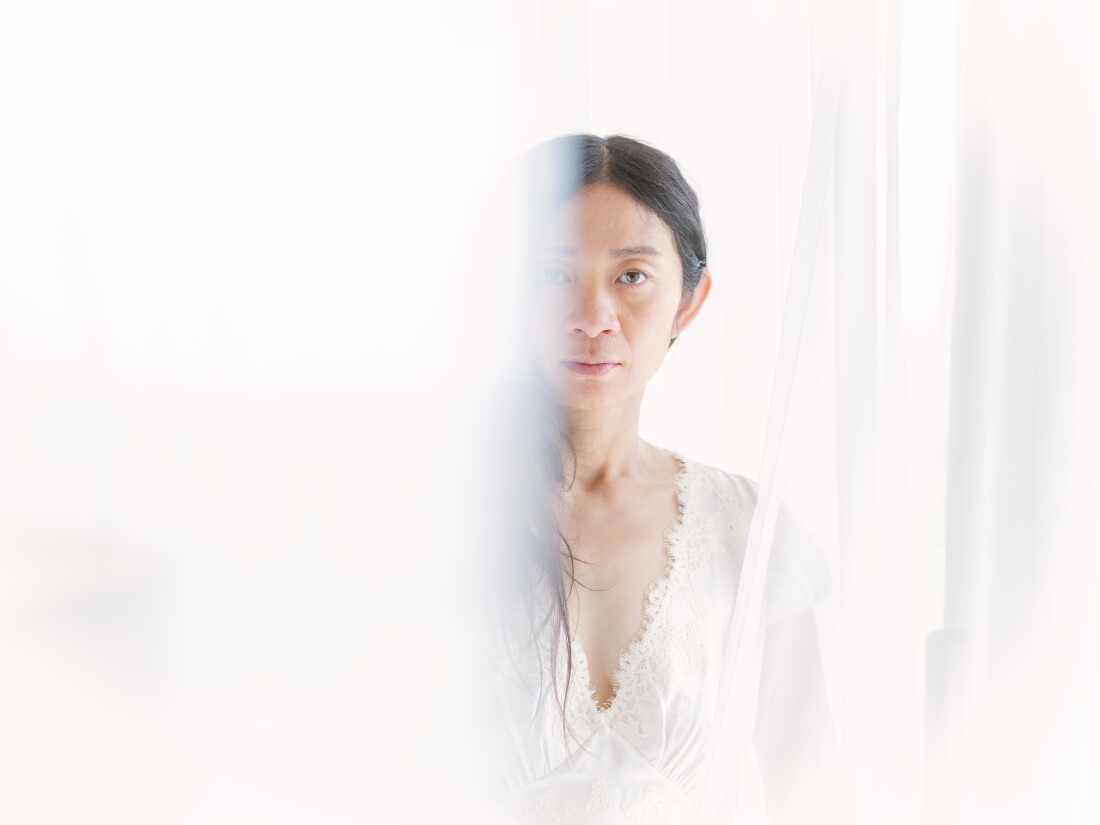
Zhao says she believes in ceremonies and rituals, and makes them a part of her filmmaking process.
Bethany Mollenkof for NPR
hide caption
toggle caption
Bethany Mollenkof for NPR
Then Zhao and I sat down to talk.
“I had a dream that we were doing this interview,” I told her. “And it started with a photo shoot, and there was a glass globe –”
“No way!” she gasped.
It so happens that on the desk next to us, was a small glass globe — perhaps a paperweight.
I told her that in my dream, she was looking through the globe at some projected images. “We were having fun and it was like we didn’t want it to stop,” I said.
“Oh, well, me and the globe and the lights on the wall: they’re all part of you,” Zhao said. “They’re your inner crystal ball, your inner Chloé.”
“Inner Chloé?” I asked. “What is the inner Chloé like?”
“I don’t know, you tell me,” she said. “Humbly, from my lineage and what I studied is that everything in a dream is a part of our own psyche.”
Dreams and symbols are very much a part of Zhao’s approach to filmmaking, which she describes as a magical and communal experience. She said it’s all part of her directing style.
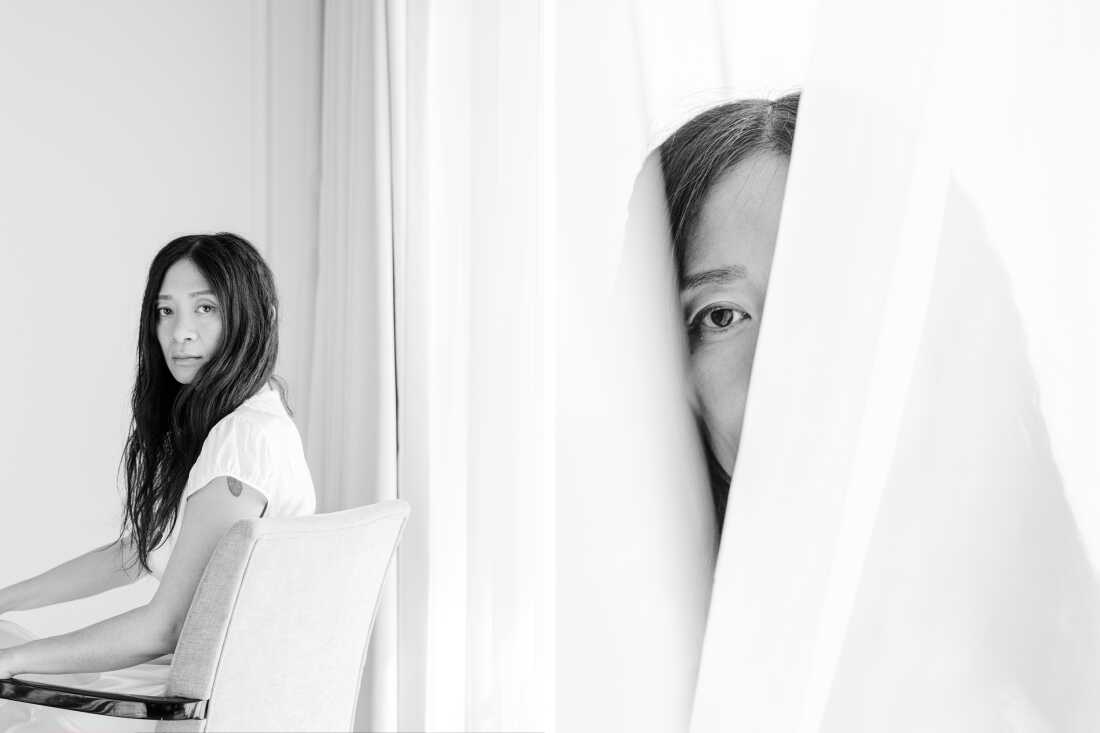
Chloé Zhao used painting and dance to connect with actors on the set of her latest film Hamnet.
Bethany Mollenkof for NPR
hide caption
toggle caption
Bethany Mollenkof for NPR
“If you’re captain of any ship, you are not just giving instructions; people are also looking to you energetically as well,” she explained. “Whether it’s calmness, it’s groundedness, it’s feeling safe: then everyone else is going to tune to you.” Zhao says it has taken many years to get to this awareness. Her own journey began 43 years ago in Beijing, where she was born. She moved to the U.S. as a teen, and studied film at New York University where Spike Lee was one of her teachers. She continued honing her craft at the Sundance Institute labs — along with her friend Ryan Coogler and other indie filmmakers.
Over the years, Zhao’s film catalogue has been eclectic — from her indie debut Songs My Brothers Taught Me, set on a Lakota Sioux reservation, to the big-budget Marvel superhero movie Eternals. She got her first best director Oscar in 2021 for the best picture winner Nomadland. Next up is a reboot of Buffy the Vampire Slayer.
“A creative life,” she notes, “is not a linear experience for me.”
Zhao still lingers over the making of Hamnet, a very emotional story about the death of a child. During the production, Zhao says she used somatic and tantric exercises and rituals to open and close shooting days.
She also invited her lead actors Paul Mescal and Jessie Buckley to help her set the mood on set. They danced, they painted, they meditated together.
“She created an atmosphere where everybody who chose to step in to tell this story was there for a reason that was deeply within them,” actress Jessie Buckley told me.

Buckley is a leading contender for this year’s best actress Oscar. She said that to prepare for her very intense role as William Shakespeare’s wife, Zhao asked her to write down her dreams “as a kind of access point, to gently stir the waters of where I was feeling.”
Buckley sent Zhao her writings, and also music she felt was “a tone and texture of that essence.”
That kind of became the ritual of how they worked together, Buckley said. “And not just the cast were moving together, but the crew were and the camera was really creating dynamics and a collective unconscious.”
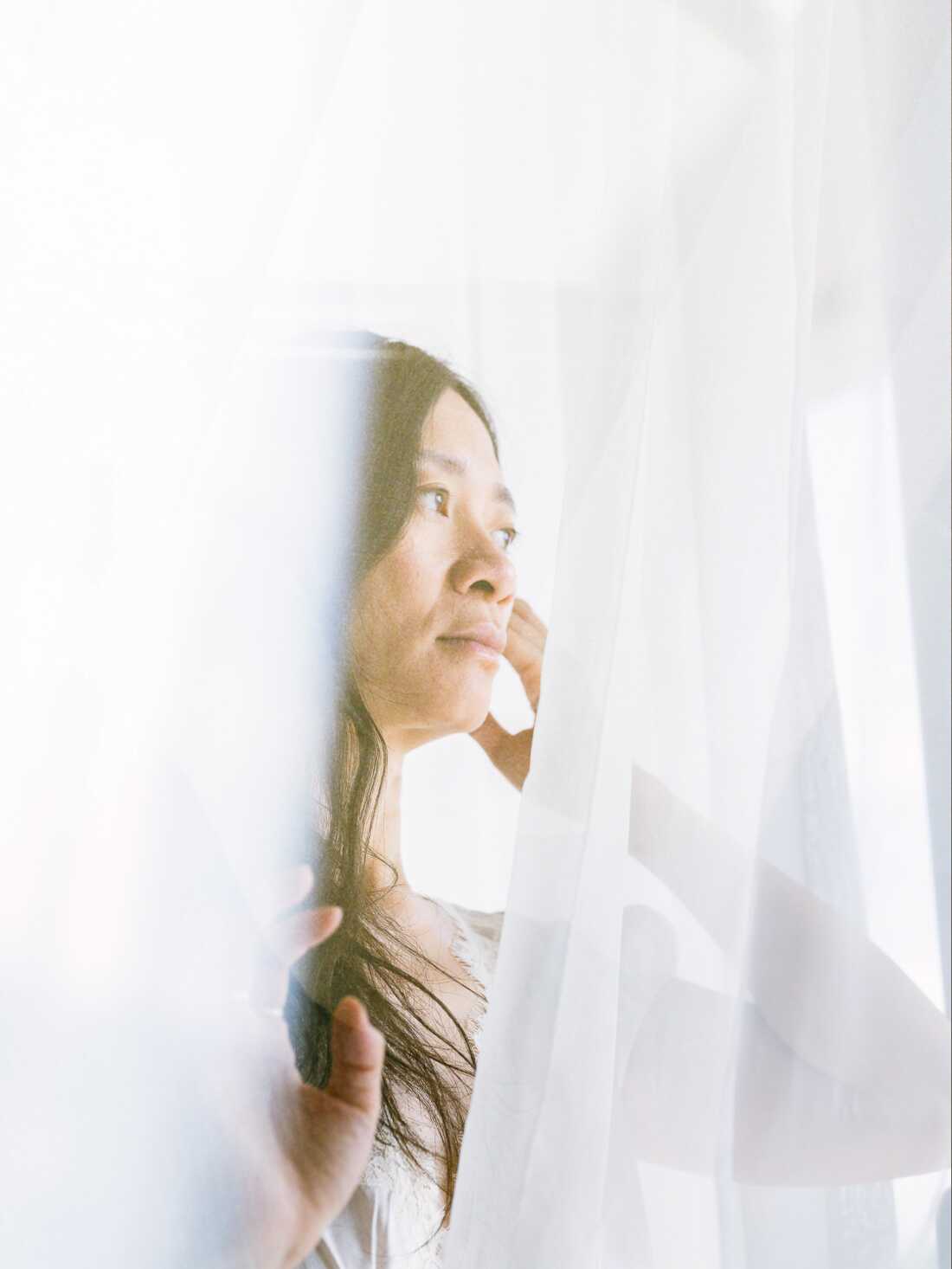
Filmmaker and Hamnet producer Steven Spielberg calls Zhao’s empathy her superpower.
Bethany Mollenkof for NPR
hide caption
toggle caption
Bethany Mollenkof for NPR
That was incredibly useful for creating Hamnet — a story about communal grief. Steven Spielberg, who co-produced the film, called Zhao’s empathy her superpower.
“In every glance, in every pause and every touch, in every tear, in every single moment of this film, every choice that Chloé made is evidence of her fearlessness,” Spielberg said when awarding Zhao a Directors Guild of America award. “In Hamnet, Chloé also shows us that there can be life after grief.”
Zhao says it took five years and a midlife crisis for her to develop the emotional tools she used to make Hamnet.
“I hope it could give people a two-hour little ceremony,” she told me. “And in the end, I hope that a point of contact can be made. That means that there’s a heart opening. But it will be painful, right? Because when your heart opens, you feel all the things you usually don’t feel. And then a catharsis can emerge.”
As our interview time came to a close, I told Zhao I have my own little ritual at the end of every interview; I record a few minutes of room tone, the ambient sound of the space we’re in. It’s for production purposes, to smooth out the audio.
Zhao knew just what I meant. She told me a story about her late friend Michael “Wolf” Snyder who was her sound recordist for Nomadland. “He said to me, ‘I don’t always need it, but just so you know, I am going to watch you. And when I tell that you are a little frazzled, I’m going to ask for a room tone … just to give you space.’” she recalled. “‘And if you feel like you need the silence space, you just look at me, nod. I’ll come ask for a room tone.’”
I closed our interview ceremony with that moment of silence, a moment of peace, for director Chloé Zhao.
-

 World6 days ago
World6 days agoExclusive: DeepSeek withholds latest AI model from US chipmakers including Nvidia, sources say
-

 Massachusetts7 days ago
Massachusetts7 days agoMother and daughter injured in Taunton house explosion
-

 Denver, CO7 days ago
Denver, CO7 days ago10 acres charred, 5 injured in Thornton grass fire, evacuation orders lifted
-

 Louisiana1 week ago
Louisiana1 week agoWildfire near Gum Swamp Road in Livingston Parish now under control; more than 200 acres burned
-

 Oregon5 days ago
Oregon5 days ago2026 OSAA Oregon Wrestling State Championship Results And Brackets – FloWrestling
-

 Florida3 days ago
Florida3 days agoFlorida man rescued after being stuck in shoulder-deep mud for days
-

 Maryland3 days ago
Maryland3 days agoAM showers Sunday in Maryland
-

 Culture1 week ago
Culture1 week agoTry This Quiz on Thrilling Books That Became Popular Movies



















